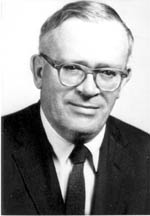 “In the traditional or Classical-Christian view, life is experienced as participation in (or as rebellion against) a comprehensive order of existence – natural, social and divine – that precedes the existence of the individual. The basic values and institutions of society are affirmed by its members because they see them as grounded, not in the arbitrary will of men, but in truth. Freedom, creativity, and progress unfold from within the natural and transcendent orders in which man is situated, not in complete rejection of them.* At the same time, though capable of good, man is inclined to every kind of evil, particularly the lust for power. This realistic understanding of our flawed human nature was embedded in our traditional morality, with its constraints on inordinate desire, and in the U.S. Constitution, with its system of checks and balances preventing the concentration of power in any one part of the state.
“In the traditional or Classical-Christian view, life is experienced as participation in (or as rebellion against) a comprehensive order of existence – natural, social and divine – that precedes the existence of the individual. The basic values and institutions of society are affirmed by its members because they see them as grounded, not in the arbitrary will of men, but in truth. Freedom, creativity, and progress unfold from within the natural and transcendent orders in which man is situated, not in complete rejection of them.* At the same time, though capable of good, man is inclined to every kind of evil, particularly the lust for power. This realistic understanding of our flawed human nature was embedded in our traditional morality, with its constraints on inordinate desire, and in the U.S. Constitution, with its system of checks and balances preventing the concentration of power in any one part of the state.
“* Transcendence could be defined simply as the quality of any whole which is larger than the sum of its parts, and which therefore cannot be an object of direct experience. An example of transcendence that should be understandable to most Americans is the idea of ‘man,’ as in ‘all men are created equal … endowed by their Creator with certain unalienable rights.’ While we can see individual human beings everywhere, we cannot see ‘man’ anywhere, even though ‘man’ is the essential nature of what we are, and, according to the Declaration, the very source of our rights as individuals. Similarly, a nation cannot be seen or experienced with the senses, yet its members do not doubt its reality as something that transcends the individual members and provides the meaningful order of their lives. When people lose a transcendent idea of their nation, they also lose the will to preserve o defend the nation itself, just as, when they lose a transcendent idea of human nature, they cease to be offended by crimes against human beings.”
▪ Lawrence Auster, Erasing America – The Politics of the Borderless Nation (American Immigration Control Foundation, 2003) extract from pages 12 and 13.





Be the first to comment on "Quote of the Week: Lawrence Auster, “Erasing America”"